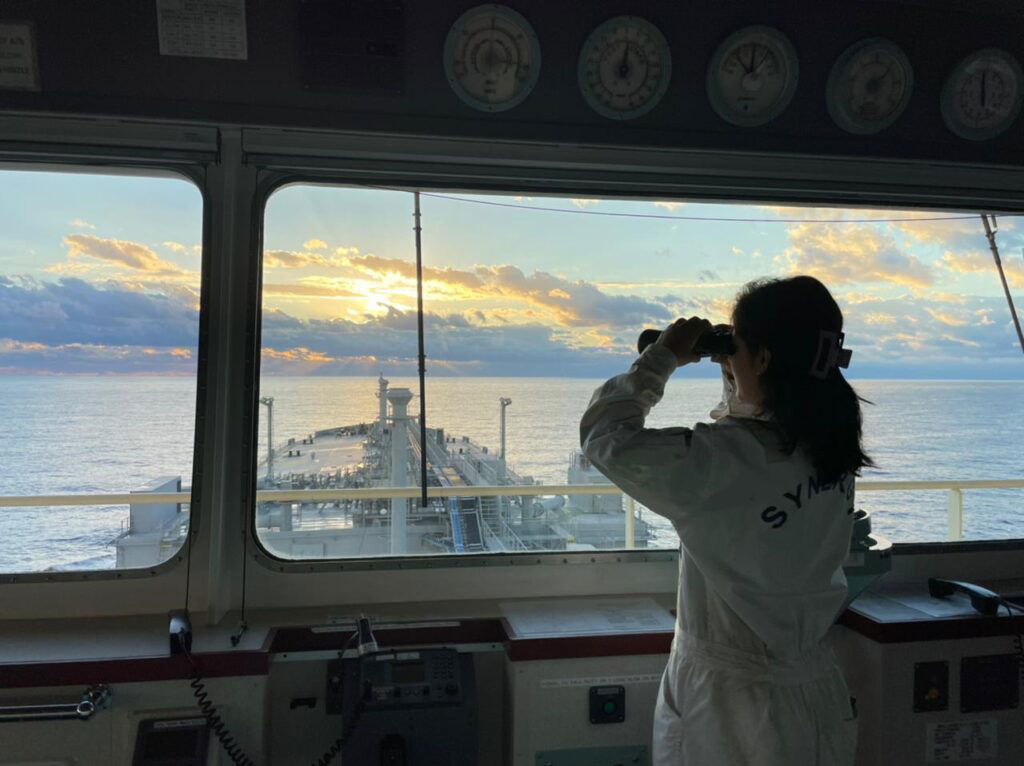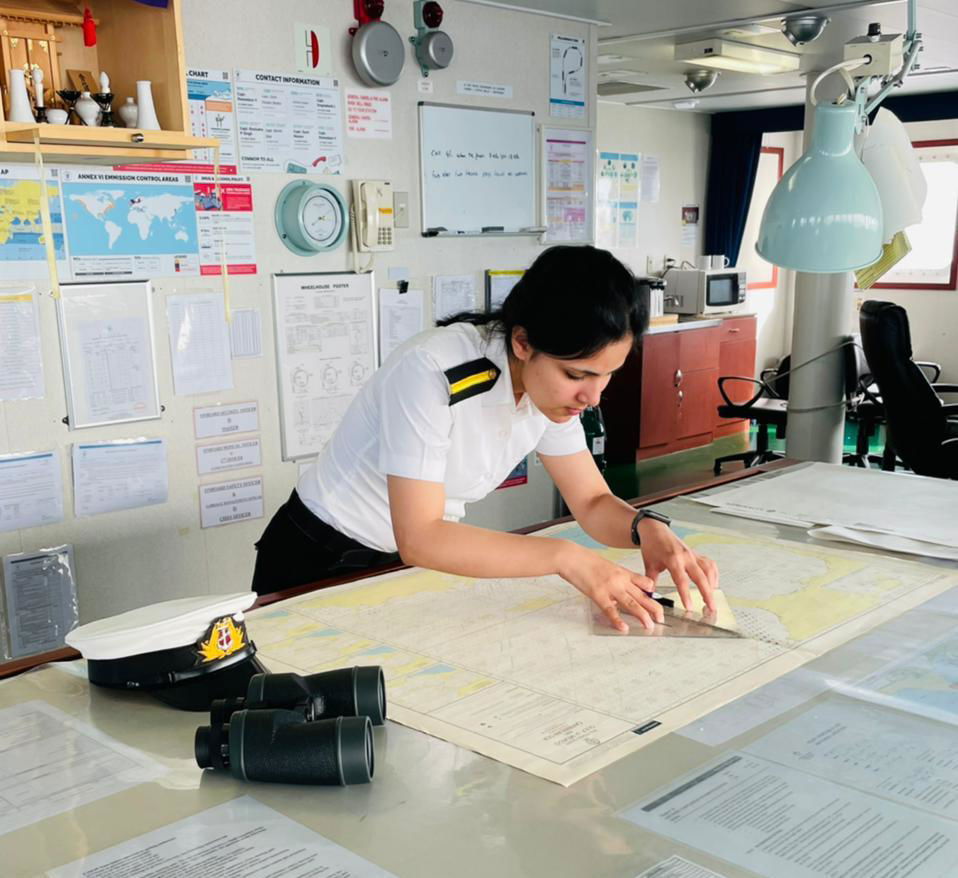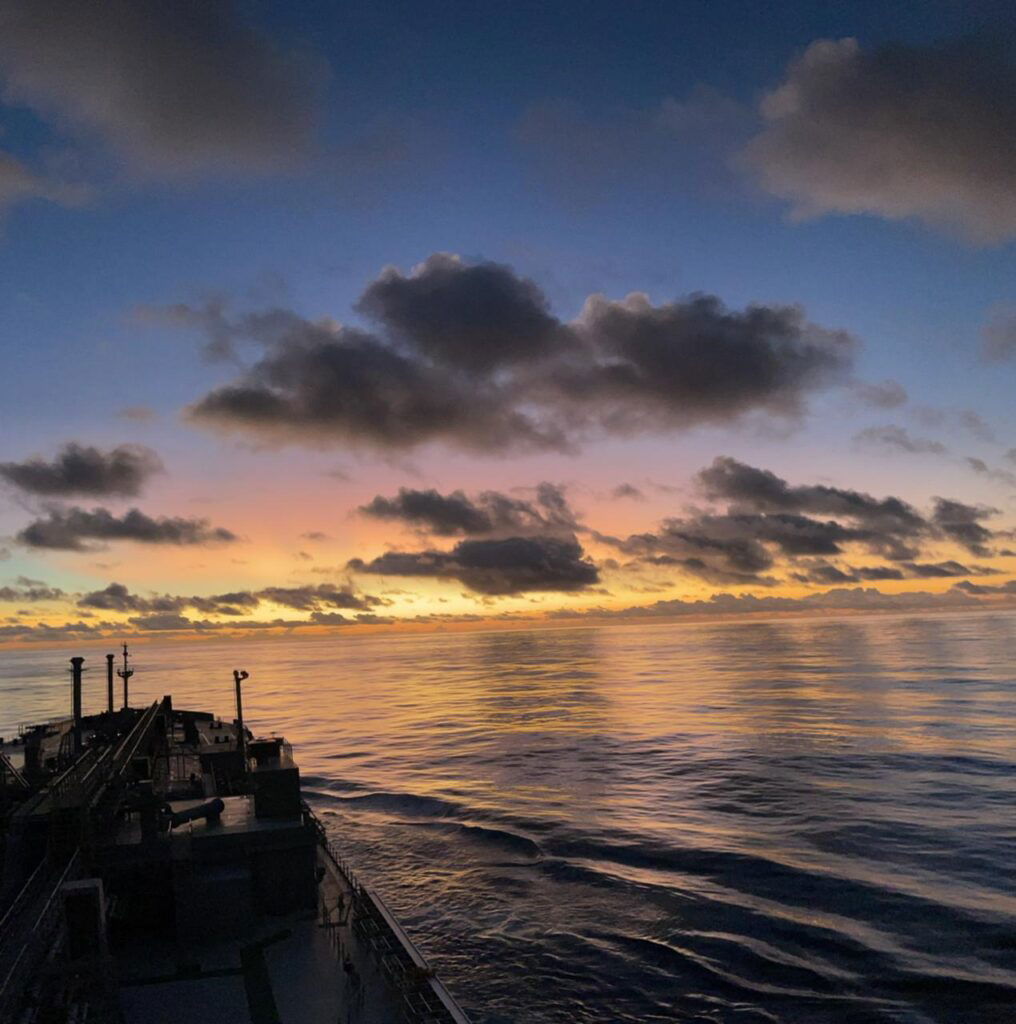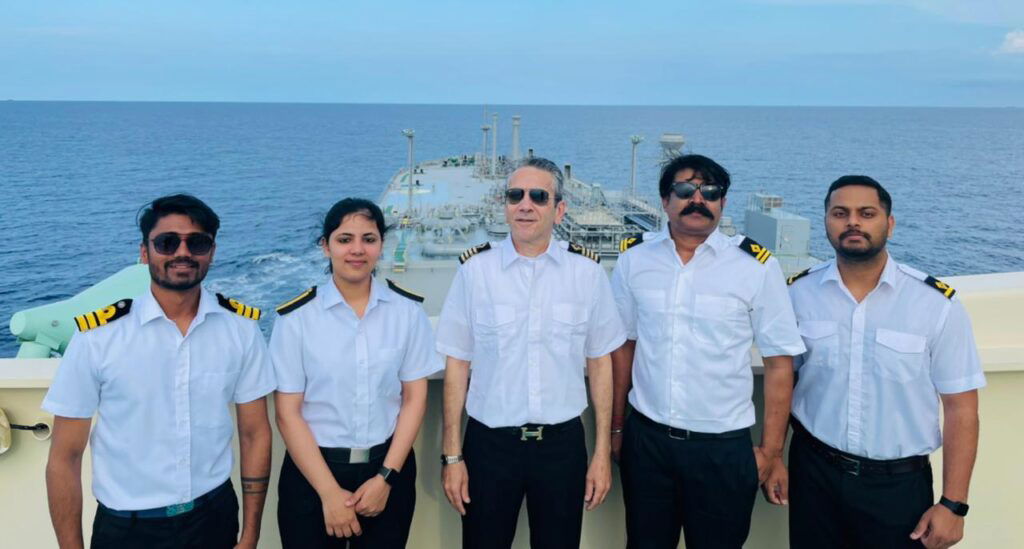1. Why did you choose a career in seafaring?
What attracted, and continues to attract, me to the seafaring profession is that it differs greatly from any typical 9-5 existence. In so many ways it is highly adventurous and offers unique opportunities to navigate the globe and encounter the wonders of the oceans. You can sometimes explore exotic locations and there is a great mix of cultures, on board and ashore, so you meet and mingle with people of different nationalities and varied backgrounds.
Good pay is the cherry on the cake, but the cake is the most important thing.
My parents are my pillar of strength and their constant support only made it easier for me to join this profession.
2. Where did you complete your maritime training?
I did this in 2020 at Applied Research International in New Delhi.
3. Why did you choose to join Synergy Marine Group?
The straightforward answer is because, to my mind, Synergy reliably supports women seafarers and offers genuinely equal opportunities.
In a bit more detail, diversity and inclusion is a major part of Synergy’s work culture, where all can thrive and achieve excellence no matter what is their race, colour, religion or gender. All staff – the manning team, the technical team, the administration people, the whole lot – are always very supportive. Also, meshed right in with an amazing team on board any Synergy-managed ship, the company’s core values – Integrity, Safety, Transparency, Empathy, Empowerment and Respect (iSTEER) daily help us all in being better seafarers.
4. Have you faced any particular challenges on board, as a woman seafarer?
Everyone on board, man or woman, faces new challenges, and I think for everyone every day is a new beginning, a new lesson and a new situation.
But there is an important distinction, here.
With Synergy I have never encountered anything adverse just because I am a woman, and I do not expect to. However, there are, still, things that women will experience, such as a type of loneliness – for example, no other woman on board (mostly)- and also lurking doubt about being accepted. But this is a diminishing echo, as things are still changing greatly for the better, and those in the wider industry with outdated ideas are increasingly rare, and will likely soon vanish, just as two or more women on board will become the norm.
5. What do you enjoy most about working at sea?
I love the fact that on board ship no two days are ever the same, which gives me the ability not only to improve my varied and increasing skills but also to learn something new every day, which I greatly value and appreciate.
6. Tell us what a typical day at sea looks like for you?
As I say, there is no such thing, really.
As a Deck Cadet my main responsibilities are to help with the daily operations, and ship maintenance. Every day is unique, but on a general day – always working hard, but also smart, as I like to say – my tasks can include tank entries, navigational watches, cargo watches and maintenance on deck.
7. What excites you most about being a seafarer?
The simple fact that every day is a new challenge. Monday could be chipping and painting and Tuesday could be tank entries and inspections, or both could have both. Learning new things every day is what motivates me to wake up early every morning (subject to watches, of course, which offer yet more variety) and give my utmost.

8. Share something interesting about yourself that we might not know?
I hope this will soon become known, in that I pride myself on being a responsible person. I feel a strong sense of duty, and when I take on a work I want to own it and ensure that it is not only completed, but completed well.
9. What do you like to do during your time ashore?
I love to spend quality time with my friends and family, which normally means either vacations or doing an activity together.

10. If you ever moved ashore, what would you miss most about working at sea?
I don’t see myself ever working ashore, as I love my job at sea. However, if that happened I would definitely miss the wonderful sunrises and sunsets with the beautiful pink and orange hues, and the peace and calm that one experiences when simply looking out at the ocean.

11. What changes do you believe the maritime industry needs to implement in order to improve gender equality?
The industry needs to visibly and consistently encourage female applicants and create pathways for women. For example, it should look at urging girls and women to join STEM programmes. And in the same way that the industry needs talented men and also women to tackle the complexities of increasing digitisation, specific policies – I mean policies, not privileges – should be implemented in order to eradicate bias and foster equal opportunities for women as serving seafarers. Jobs ashore are fine but (as for me) they are not for everyone. I would love to see more women on board, and see the maritime world finally banish the old notion that seafaring is just for men.
12. What has been your experience sailing with Synergy so far?
It has been a good experience so far. Every day has its challenges, and that just motivates me to do better.
13. It is still rare to find women seafarers, but things are changing for the better. Please share your views on this.
I certainly see change happening. I now see many women in the maritime sector, and there are now more on board, especially on Synergy-managed ships. I think two things are changing most of all.
Firstly, in the specific education and practical training that women can now get, and in the industry’s better acceptance of the idea of that. At Synergy, my peers on board especially have helped me learn the necessary skills, where it really matters, to do my tasks well.
Secondly, and back to acceptance, I think that, due to increasing numbers, role models, or whatever, women more and more feel that they are being accepted, so among them there is less of the idea that they might not be.
In both respects there is still some way to go, but the direction is the right one.
14. What advice would you give to anyone considering a career at sea, especially young women seafarers?
Seafaring is a very attractive career that gives you opportunities to travel and to earn good money, but it can be tough, both mentally and physically, and comes with early responsibility and a ton of challenges. Be prepared for that, but believe always in your capabilities and strengths and do not let anyone make you feel that you are not worthy of your role or of the rank that you progress to hold.




